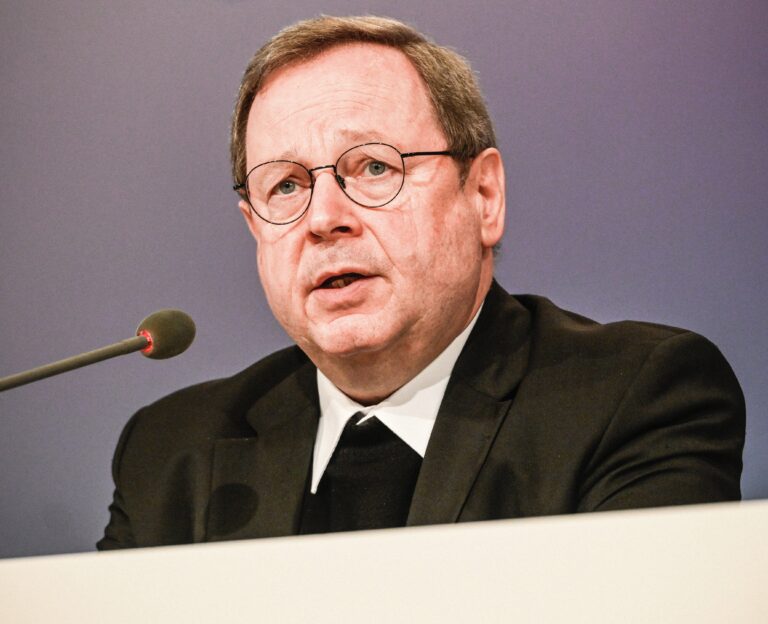Several speakers at the European Continental Assembly of the World Synod in Prague on Monday criticised a lack of attention to abuse victims at the event.
The most comprehensive criticism came from the president of the German Bishops’ Conference, Bishop Georg Baetzing of Limburg. He said on Monday evening that too little had been said in the contributions so far about the fact that the Church was “deeply wounded” because numerous priests and members of religious orders had “wounded people in the Church” through sexual abuse.
He warned that the situation was dramatic. In Europe, there were “hundreds of thousands of victims” of sexual abuse by clerics. If they were not heard, no forgiveness was possible, he said. It was incomprehensible why the victims had no voice at the Synod. He said he appreciated that abuse had been mentioned in one chapter of the preparatory paper, but that wasn’t enough.
Like Baetzing, Stephan Liepke, a Jesuit priest working in Moscow, criticised the way the abuse scandal had been dealt with in the Synod so far. He mentioned the sermon given by Prague Archbishop Jan Graubner at the opening service on Sunday evening in which Graubner had spoken of “some scandals” by men of the Church and by clerics. In reality, Liepke said, there had many scandals and offences. It was a “huge problem that we have to tackle seriously to find out what repentance and a new beginning can mean”.
The theologian Julia Knop, who teaches in the eastern German city of Erfurt, voiced criticism in a guest commentary published on Tuesday on the Church website katholisch.de.
She said the European session of the World Synod would hardly be able to contribute to Church reform. The consultations were “neither discursive nor participatory” and they didn’t serve “the formation of a common will, but rather episcopal judgement”. From the very beginning, the programme in Prague was not based on reform issues, wrote Knop, a member of the German Synodal Path.
Previously, in an article for the journal Herder Korrespondenz, the dogmatist had called for a fundamental “reconfiguration” of the Catholic faith. The “individual relationship with the institution of the Church” must be made immune to the “manipulations of thought, faith and prayer, of clericalism, sexism and an ecclesiastical ideology of obedience”.
For decades, these factors had fostered “abuse and concealment, co-clericalism and bystanderism” but also “one’s own vulnerability to falling prey to abusive behaviour and being manipulated emotionally, sexually, spiritually or intellectually”, she said.
The appearance of being sacred had been broken, she added. Therefore it could be “extremely healing and liberating” that “Church teachings, especially on ecclesiology and sexual ethics, are rapidly losing authority, Church leaders are massively losing credibility and Church liturgies are to a large extent losing their attractiveness, at least in statistical terms”.
Originally reported by KNA Germany.



